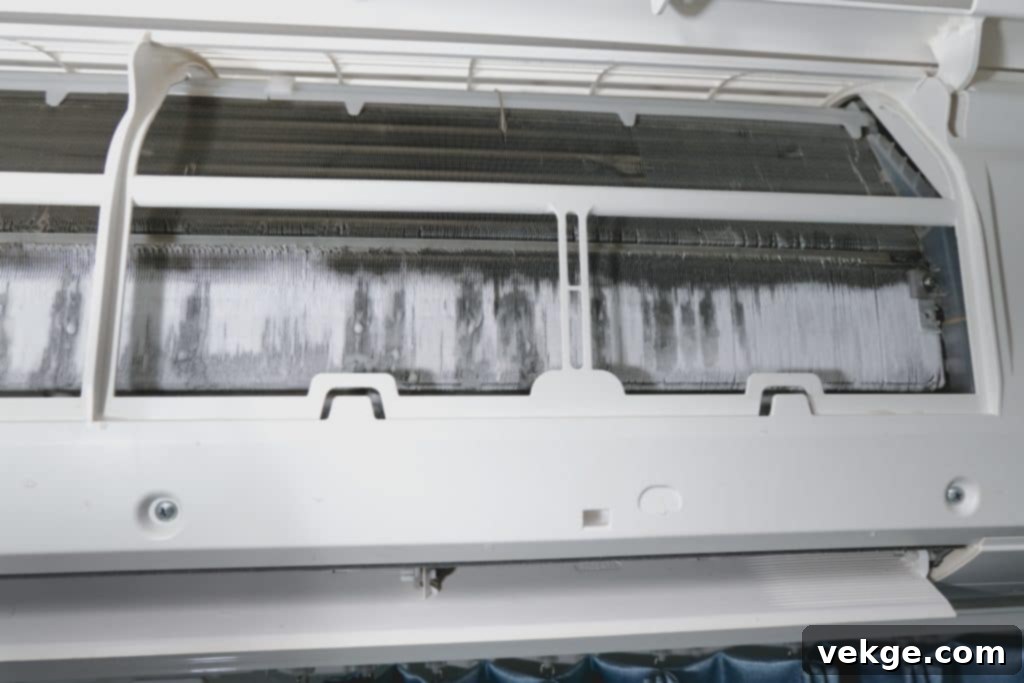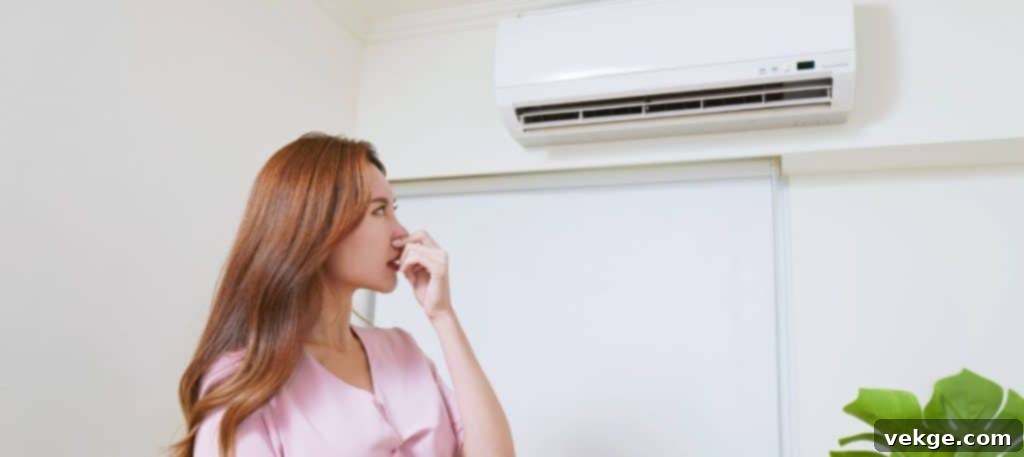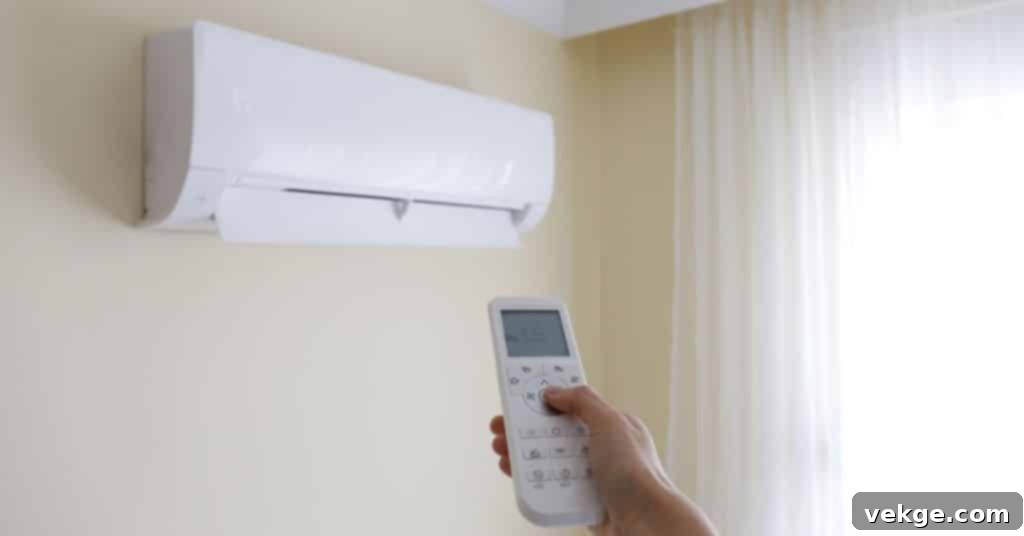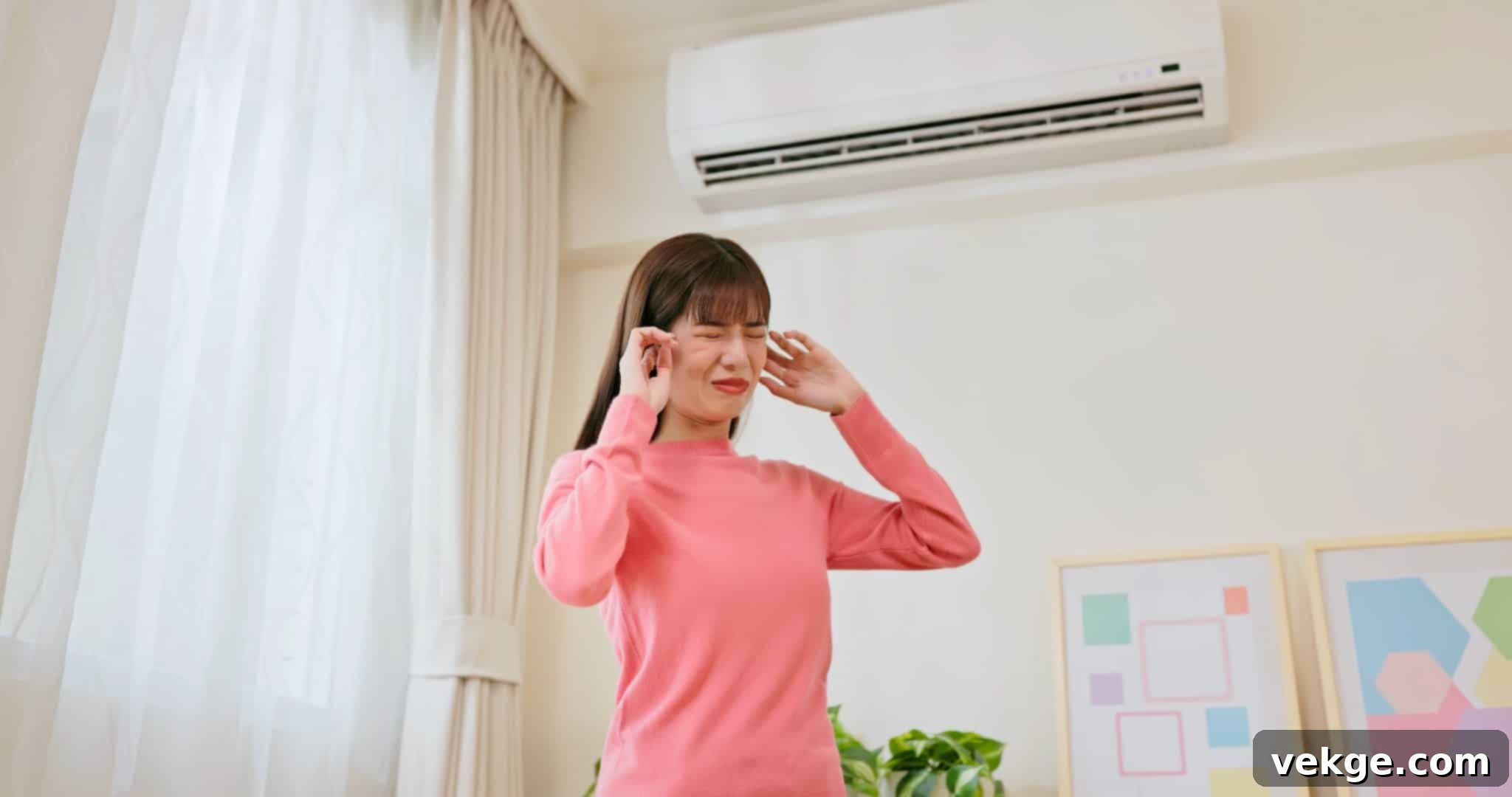Don’t Sweat It: Crucial Signs Your Air Conditioner Needs Professional Repair
There’s nothing quite like the relief of stepping into a cool, air-conditioned home on a sweltering summer day. But what happens when that blissful cool air turns into a lukewarm sigh, and your haven transforms into a giant furnace? The frustration is palpable as sweat trickles down your back, and cranking the thermostat lower seems to have no effect. This scenario is all too familiar for countless homeowners when their air conditioning unit falters during peak season.
The immediate question that springs to mind is: Is my AC unit merely experiencing a temporary hiccup, or is it on the verge of a complete and costly breakdown? The good news is that your air conditioner, much like a trusted friend, usually provides clear warning signs before it completely throws in the towel. By recognizing these indicators early and contacting a fast and efficient air conditioning service, you can not only avoid a summer meltdown but also ensure your home remains cool, comfortable, and energy-efficient all year long. Ignoring these signals can lead to more extensive damage, higher repair costs, and prolonged discomfort. Let’s explore the key warning signs that signal it’s time to call in the professionals.
Warm Air Blowing From The Vents

You set your thermostat to an almost arctic temperature, yearning for that refreshing blast of cool air to sweep away the oppressive summer heat. But instead of that satisfying chill, your vents are pumping out air that feels suspiciously warm or merely lukewarm, barely making a dent in the sweltering indoor environment. This isn’t your air conditioner playing a cruel prank; it’s a significant indicator that something is fundamentally wrong with its cooling capabilities.
Warm air blowing from your AC vents is a major red flag that demands immediate attention. Several critical issues could be at play. The most common culprit is a **refrigerant leak**. Refrigerant is the lifeblood of your AC, absorbing heat from your home and releasing it outside. If levels are low, the system can’t effectively cool the air. Another potential issue is a **malfunctioning compressor**, which is essentially the heart of your AC system, responsible for circulating refrigerant. If the compressor is failing, it won’t be able to pressurize the refrigerant, leading to a loss of cooling. Other factors might include a **clogged air filter** severely restricting airflow, **dirty condenser coils** inhibiting heat exchange, or even a **thermostat malfunction** incorrectly reading the temperature or failing to send the correct signals to the unit. Regardless of the exact cause, a professional technician can accurately diagnose the problem and fix it, preventing your cool sanctuary from turning into an unbearable sauna and potentially saving you from more severe system damage down the line.
Weak Airflow
Do you remember that invigorating rush of cool air that used to greet you every time you switched on your air conditioner? If that powerful “whoosh” has been replaced by a faint, anemic sigh, you’re experiencing weak airflow. This subtle yet significant issue is a common culprit behind uneven cooling, frustrating hot spots in your home, and a general feeling of rising discomfort.
Weak airflow can stem from a variety of underlying problems, each impacting your system’s efficiency and your comfort. The most straightforward cause is often a **clogged air filter**. Over time, filters accumulate dust, dirt, and allergens, creating a barrier that significantly restricts the passage of air. Imagine trying to breathe through a thick, dusty blanket – that’s what your AC is doing. Beyond filters, **dirty ducts** act like a clogged highway for your cool air; obstructions or excessive buildup inside the ductwork prevent air from flowing freely to all areas of your home. Additionally, **blocked or closed vents** in certain rooms can inadvertently reduce overall system pressure and airflow. More serious issues like a **failing fan motor** (either in the indoor or outdoor unit) or **leaks in the ductwork** (allowing cooled air to escape into unconditioned spaces like attics or crawl spaces) can also severely diminish airflow.
Weak airflow doesn’t just leave you uncomfortable; it forces your AC unit to work significantly harder to try and reach the desired temperature. This increased strain not only leads to considerably higher energy bills but also accelerates wear and tear on crucial components, potentially leading to premature breakdowns. Don’t let your system struggle. Addressing weak airflow early can help maintain optimal cooling, extend your AC’s lifespan, and keep your wallet happier in the long run.
Unpleasant Odor From The Vents
If you’ve started detecting a musty, moldy, or even vaguely chemical odor wafting from your AC vents, your air conditioner might be telling you it’s become a breeding ground for something unwelcome. This unpleasant aroma is a distinct red flag for several issues, most commonly the insidious growth of mold and mildew lurking within your system.

Mold and mildew thrive in damp, dark environments, and your AC unit, especially the evaporator coil and drain pan, is an ideal personal moisture factory. The natural condensation process combined with the cool, recirculated air creates a perfect breeding ground for these spores. Inhaling these airborne spores can have detrimental effects on your health, irritating allergies, worsening asthma, and causing respiratory issues, leaving you to sniffle and cough rather than relax in cool comfort. Beyond musty smells, other odors can indicate different problems: a **burning smell** might point to an electrical issue or an overheated motor; a **rotten egg smell** often signals a natural gas leak (which requires immediate professional attention and evacuation); and a **chemical smell** could suggest a refrigerant leak.
Don’t wait for your home’s air quality to deteriorate or for your AC to become a giant mold farm. If you catch a whiff of anything funky or unusual, it’s crucial to act swiftly. A professional technician can thoroughly inspect your system, identify the source of the odor, clean or replace affected components, and take steps to prevent future mold growth, ensuring your indoor air remains fresh and healthy.
Strange Noises From The Unit
Typically, your air conditioner should operate with a relatively quiet hum, a subtle background presence that signifies efficient cooling. However, if your AC suddenly starts producing a symphony of unfamiliar sounds – grinding, screeching, banging, hissing, or bubbling – it’s actively trying to tell you something is profoundly wrong beneath its hood. These aren’t the harmonious sounds of summer bliss; they are distress signals that should not be ignored.
Unusual noises are your AC’s way of communicating mechanical stress or failure. A **high-pitched squealing or squeaking** often indicates a problem with the fan motor’s belt (if applicable) or worn-out bearings within the motor itself. **Grinding sounds** frequently point to loose parts, worn-out motor bearings, or a failing compressor. A loud **banging or clanging** could signify a component that has come loose, such as a fan blade hitting something, or even a serious compressor issue. **Hissing noises** might suggest a refrigerant leak (especially if accompanied by a lack of cooling) or an issue with the expansion valve. Finally, **bubbling or gurgling sounds** can indicate air in the refrigerant line or a clog in the condensate drain line. Each distinct sound provides a clue to the underlying problem.
Ignoring these strange noises is akin to ignoring a smoke detector; it will only lead to more severe damage and potentially a complete system breakdown. What might start as a minor component issue can quickly escalate into a catastrophic failure, resulting in much more expensive repairs or even the need for an entirely new unit. Call a certified technician as soon as you notice any unusual sounds. They possess the expertise to decipher your AC’s weird language, accurately diagnose the problem, and perform the necessary repairs before the situation worsens, restoring your unit to its quiet, efficient operation.
Frequent On-And-Off Cycling (Short Cycling)
You’ve adjusted your thermostat to a comfortably cool temperature, anticipating a steady flow of refreshing air. The air conditioner kicks on, runs for a brief period, then abruptly shuts off. A few minutes later, the cycle repeats. This rapid, repetitive on-and-off behavior, known as “short cycling,” is a clear and concerning sign that your AC isn’t operating correctly and requires professional attention.

Under normal circumstances, your air conditioner should run for sustained periods, steadily cooling your home until it reaches the desired temperature set on your thermostat. Once that temperature is achieved, the unit cycles off and remains dormant until the indoor temperature naturally creeps up again, at which point it restarts the cooling process. Short cycling, however, means your unit is failing to complete a full cooling cycle. This leaves your home feeling uncomfortably warm, humid, and inadequately cooled, as the system isn’t running long enough to effectively remove heat and moisture from the air.
The causes of short cycling can range from relatively minor issues to significant problems. It could be due to an **oversized AC unit** for your home, causing it to cool too quickly and shut off prematurely. Other common reasons include **low refrigerant levels** (leading to the unit struggling to cool and overheating), a **clogged air filter** or **dirty evaporator coils** (restricting airflow and causing the unit to work harder), a **malfunctioning thermostat** (misreading temperatures or faulty wiring), or even **electrical problems** with the unit’s controls. Ignoring short cycling is detrimental to your system’s health. It causes immense wear and tear on the compressor, significantly reduces the unit’s energy efficiency (leading to drastically higher utility bills), and can dramatically shorten your AC’s overall lifespan. Don’t let your AC become a cycling champion to its own detriment. Hire a qualified technician to diagnose the root cause of the problem and get your cool comfort back on track efficiently and reliably.
The Importance of Proactive AC Maintenance and Professional Repair
Recognizing the warning signs is the first crucial step, but understanding the importance of acting on them promptly is equally vital. Many homeowners tend to delay AC repairs, hoping the problem will resolve itself or waiting until the unit completely breaks down. This reactive approach almost always leads to more significant damage, higher repair costs, and prolonged periods of discomfort, especially during extreme weather.
Regular, proactive AC maintenance is the best defense against unexpected breakdowns. Annual tune-ups can help identify minor issues before they escalate, ensure all components are working efficiently, and extend the lifespan of your unit. However, once a problem has manifested, attempting DIY repairs without proper knowledge and tools can often worsen the situation, invalidate warranties, and even pose safety risks. Professional HVAC technicians are trained to diagnose complex issues, have access to specialized tools, and possess the expertise to perform repairs safely and effectively.
Final Thoughts: Keep Your Home Cool and Comfortable
Ignoring these undeniable signs of a failing air conditioner can quickly lead to a complete system breakdown, leaving you hot, frustrated, and uncomfortable in the middle of summer’s peak. Beyond the immediate discomfort, delaying repairs can cause ripple effects throughout your entire HVAC system, potentially damaging other components and leading to even more costly problems down the road. High energy bills, reduced indoor air quality, and the sheer inconvenience of a non-functional AC are all consequences that can be easily avoided.
By taking a proactive approach and calling a qualified technician for a prompt diagnosis and professional repair at the first sign of trouble, you can effectively prevent minor issues from becoming major headaches. This not only safeguards your comfort but also protects your investment in your home’s cooling system. Don’t wait for your AC to completely give up the ghost. Schedule an AC service appointment today to ensure your home stays refreshingly cool and comfortable all season long, year after year.
